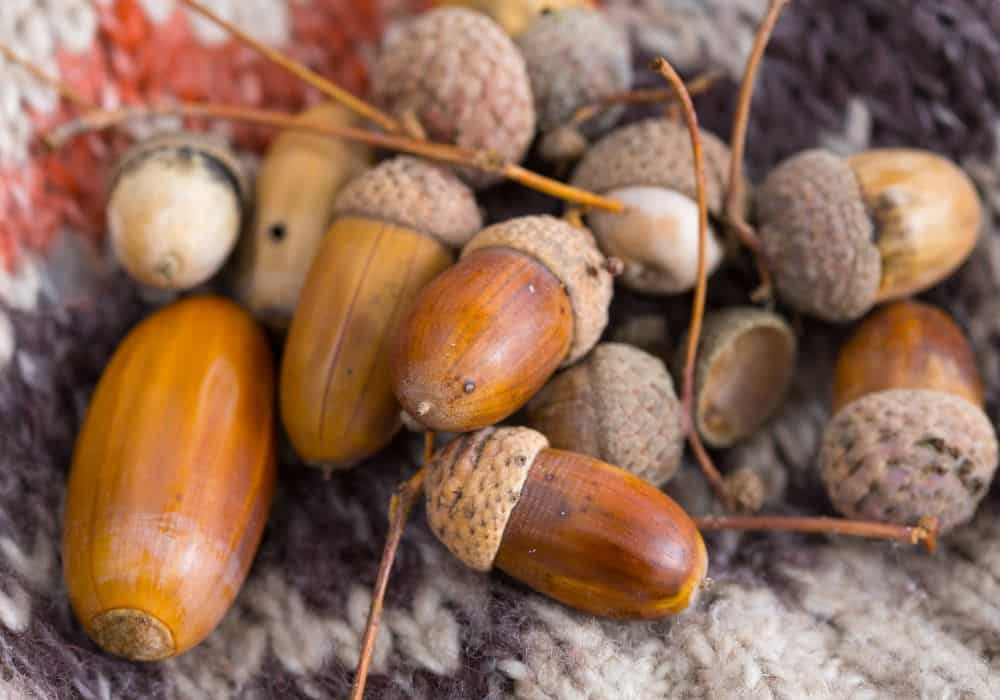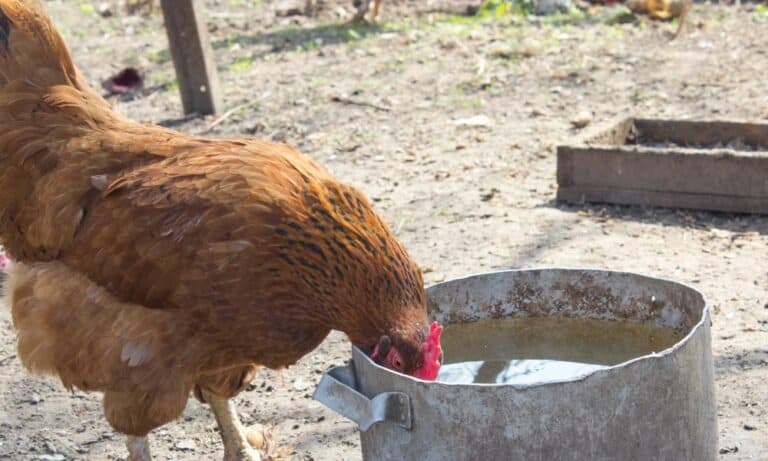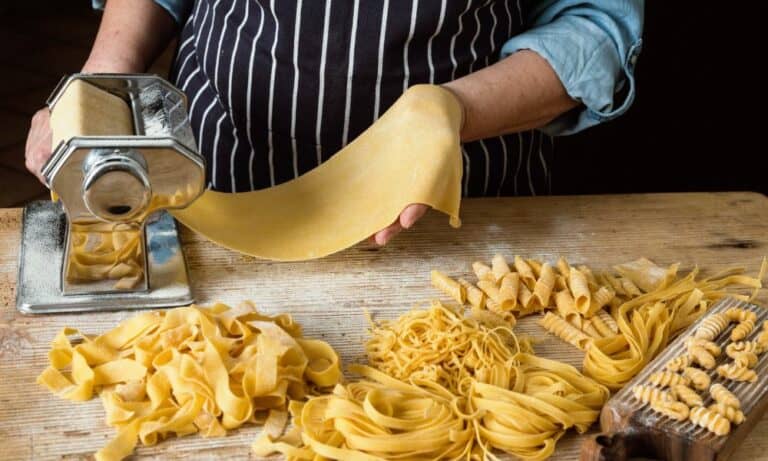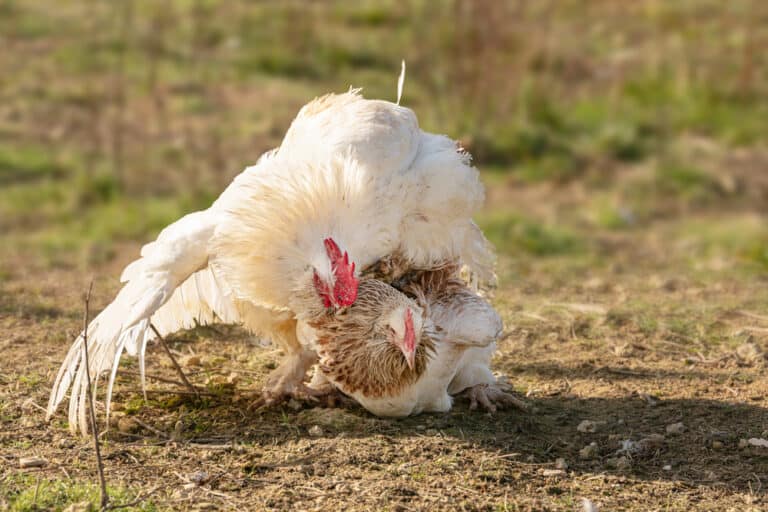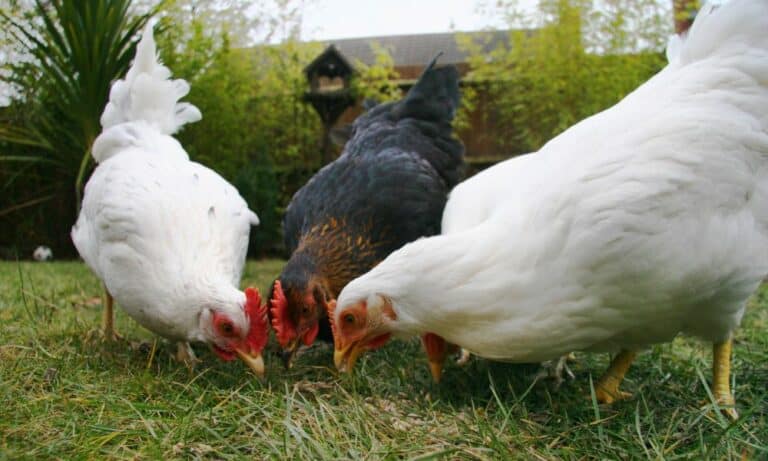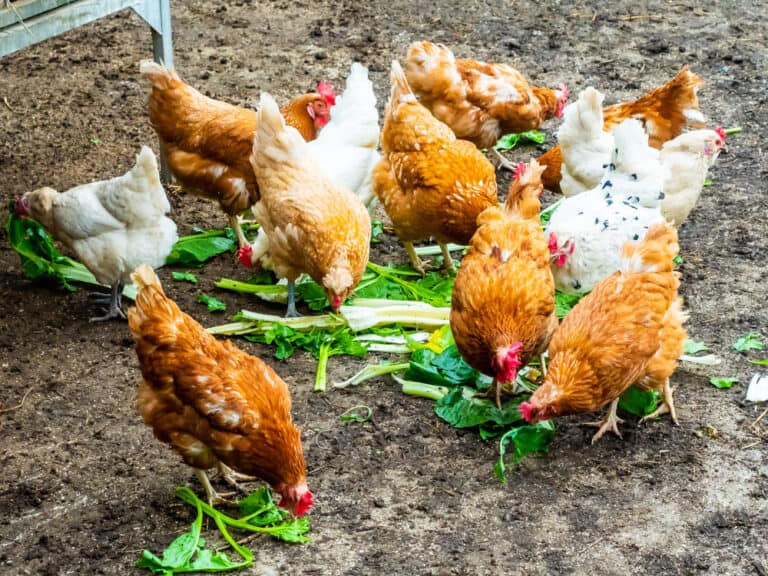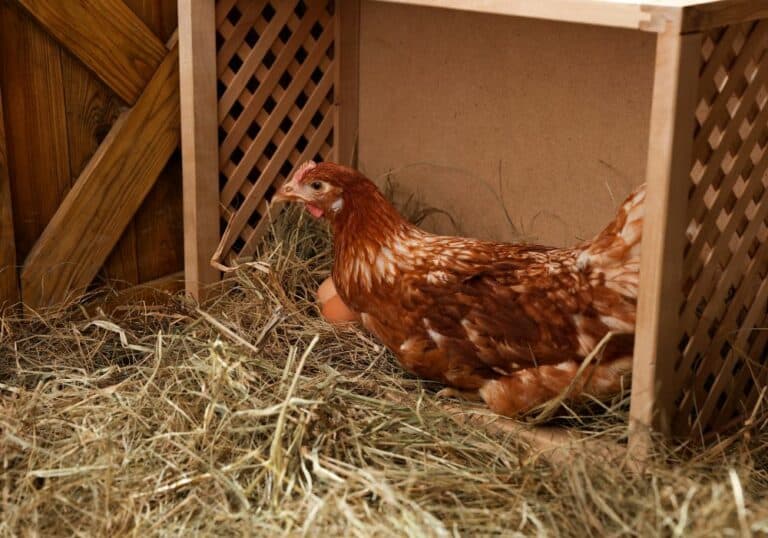Most people know that chickens are generally omnivores, meaning they will eat anything from vegetables, fruits, and insects to food scraps. However, although they are not picky eaters, and it is fairly easy to satisfy their diet needs, some people ask whether they can eat acorns.
As you know, oak trees that produce acorns are very common in the US; in fact, at least 90 species of oak trees are native to North America. Therefore, the possibility is that your chicken might stumble upon an acorn and eat it.
So, can chickens eat acorns? Let’s find out!
Are Acorns Safe For Chickens?
The truth is that raw and uncleaned acorns are not safe for your flock! If your chickens are free-range, they will likely wander off and find an acorn.
Chickens are very inquisitive by nature; they like to forage or explore the world, and they do most of that exploring with their beaks, scratching and pecking.
The good news is that even though the chicken will try to peck it, they quickly give up and the reason is obvious; acorns are tough sturdy, and have a bitter taste which makes them their least favorite treat.
Remember, if you see your chicken pecking an acorn, it is not the end of the world. The symptoms and the consequences of eating acorns are visible after consuming large quantities, and that rarely happens.
One way or the other, it is highly important for new chicken keepers to learn about the health consequences of acorn consumption and poisoning so they can avoid it and learn what to do if their chicken consumes acorns.
Why Are Acorns Toxic?
The main reason why raw or fresh acorns are toxic for chickens is tannic acid. You are probably wondering what is tannic acid. Tannic acid is a form of tannin or polyphenolic biomolecule that binds proteins and other similar compounds.
Tannin is relatively toxic for chickens, but we are not immune to it as well, as a matter of fact, it can cause a number of health issues in humans.
However, the symptoms that are associated with acorn poisoning appear after consuming large quantities of acorns.
Considering that we are discussing acorn poisoning that brings us to another commonly asked question!
Consequences of Acorn Consumption
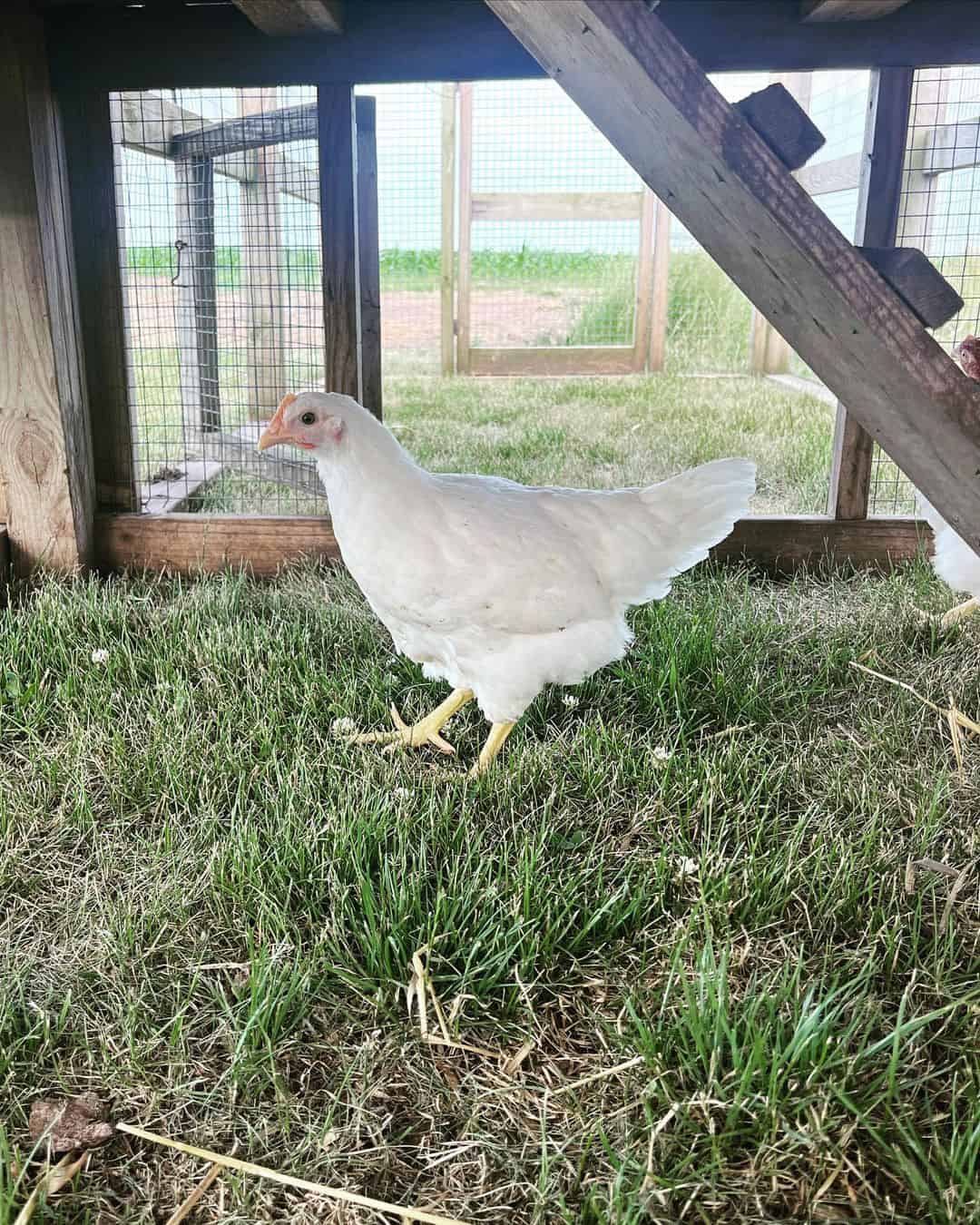
1. Quercus Poisoning
Quercus poisoning is, in other words, oak poisoning. We use this term for any type of poisoning caused by the consumption of oak leaves, nuts, or acorns. If you thought that chickens are only susceptible to Quercus poisoning, you thought wrong!
Even though it can happen to chickens, horses, and other farm animals, it is mostly the case with cattle and sheep and they resort to eating acorns when there is nothing else available.
The most important thing about oak poisoning is to notice the symptoms; the sooner you learn that there is something wrong with your chickens, the better the chances of an effective and corresponding treatment!
What makes Quercus poisoning problematic is the fact that there is no surefire antidote for it!
The symptoms of Quercus poisoning are similar to those of food poisoning-hindered appetite, constipation, lethargy, vomiting, and diarrhea, which are symptoms of food poisoning.
If you see that your chickens are vomiting and suffering from diarrhea, we suggest that you contact the vet as soon as possible. These symptoms can be caused by other health issues, but it is vital that you get to the bottom of the issue.
2. Organ Failure
So, what happens if you do not treat Quercus’s poisoning? There is a big chance the poisoning will cause organ failure or organ damage.
Tannic acid is particularly harmful to the digestive system, so if a chicken eats it constantly, you can expect various consequences such as gastric discomfort, nausea, stomach sensitivity, and loss of appetite.
According to several studies, tannic acid can cause kidney failure or cause kidneys to swell. Just like the Top Shot commercials: ”That is not all”; tannic acid can cause liver and heart failure.
Ironically, tannic acid was historically used to treat different kinds of poisoning. People would usually combine it with activated charcoal and magnesium oxide to create a universal antidote.
On the other hand that happens in nature all the time; small quantities of a certain chemical can be beneficial and good for us, while consuming large quantities will definitely cause health issues. For example, ginger is known as one of the “holy” superfoods because of its numerous health benefits.
However, if you eat a large portion of ginger root, your face and mouth will swell in a matter of hours!
3. Rectal Damage
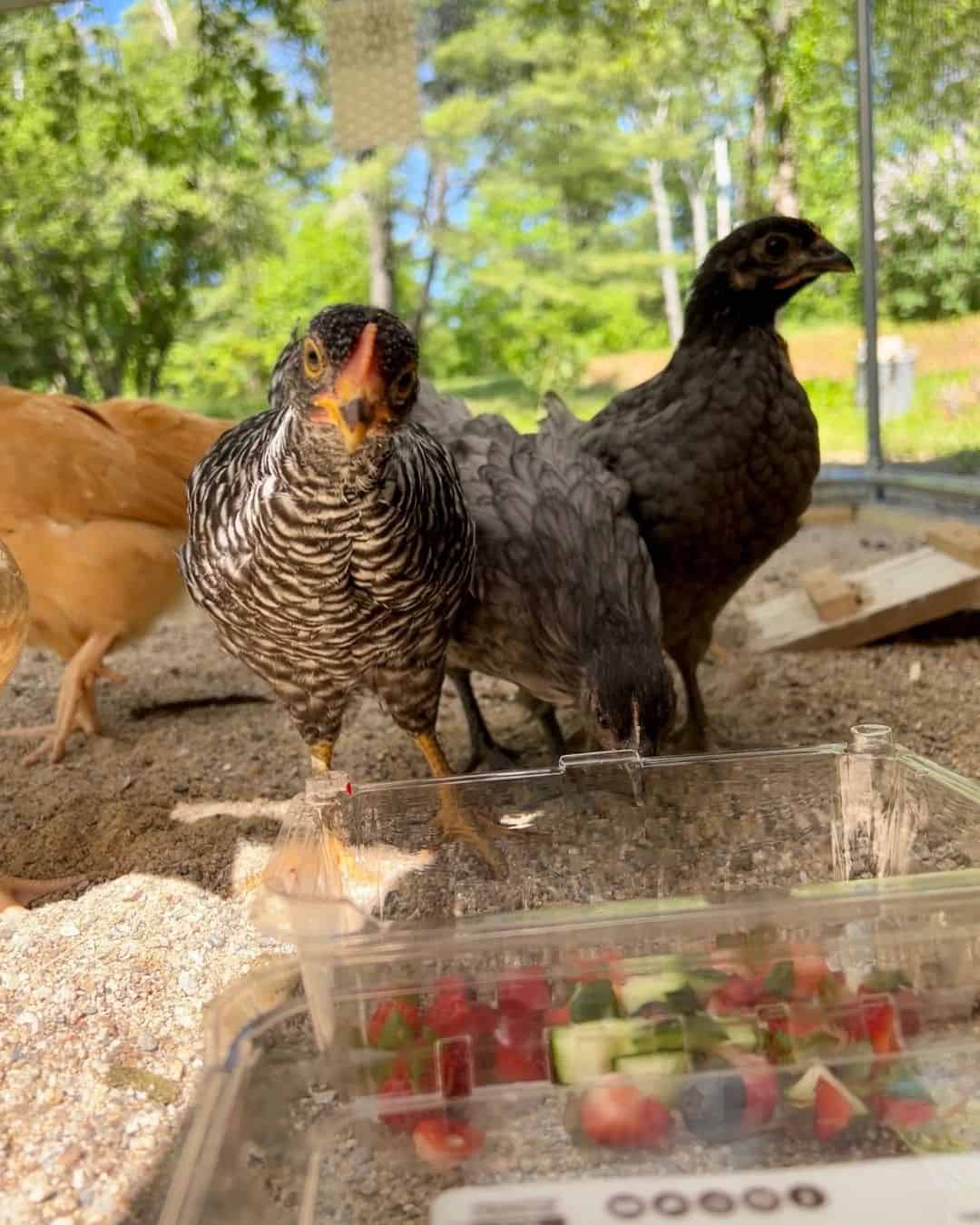
Considering if you thought that it cannot get any worse than organ failure, liver, and heart failure, wait until you hear this! A common symptom of ingesting tannic acid is diarrhea, which can ultimately lead to rectal damage.
Rectal damage usually happens when a chicken is constantly exposed to acorns and gladly munches on them. The prolonged consumption will damage rectal tissue and bring a lot of stress to the poor chicken.
The tannic acid is pretty harsh on the stomach; it disrupts the bowel system and the usual chicken routine.
Although you may think that diarrhea is not very problematic, if it is persistent or constant it can in turn, cause a number of other issues.
Considering that chicken’s anus is “surrounded” by feathers, they can easily become matter and dirty! Now imagine that chicken going to the coop and sleeping there. That chicken can transfer the “rear bottom content” to the bedding in the coop, making it a potential source of contamination.
Another issue with diarrhea is that it causes dehydration. Unfortunately, diarrhea is relatively common in poultry and can be caused by other issues besides oak poisoning.
Heat stress, worms, and consuming too many watery fruits and veggies such as cucumbers, are just some of the common causes of diarrhea.
Can Chickens Eat Oak Leaves?
The answer is no! The oak leaves also contain the toxin tannin, which will cause some or all of the symptoms mentioned above. Most of the reported cases of chicken tannin poisoning included the consumption of fresh and fallen acorns or immature oak leaves.
Fresh or immature acorns, as well as buds, twigs, and leaves, have the highest concentration of tannin, which is why they usually cause problems for chickens. Eating any of the abovementioned parts of the oak tree will cause stomach pain and disrupt the chicken’s gut health.
Can I Give Cooked Acorns to Chicken?
Acorns contain a number of health benefits (if we exclude tannin). If the acorns are thermally processed or soaked in water for a longer period, they can be given to chickens without worrying about the negative consequences.
The most important thing when preparing acorns for your chickens is to reduce the tannin levels in the acorns or leaves, depending on what you are preparing.
Believe it or not, acorns are a great source of protein, which is very important in chicken diets. Acorns mature in late summer and start falling during September and October, which is the beginning of fall.
During that time of the year, insects, which are also an excellent source of protein, are either seeking shelter, migrating, or dying, so there is not much for chickens to forage in the fall.
Therefore, if you have time to collect and prepare acorns, you can give your chicken a nutritious and free meal.
How to Feed Acorns to Chickens?
So, how to prepare or leach the acorns? One of the ways is to steep the acorns or soak them in water overnight. You must remove the shells and prepare two pots with boiling water. When the water boils, place the acorns and leave it for an hour or longer.
The acorns or nuts will color the water dark because of the tannins; you will know that your acorns or nuts are ready when the water becomes clear. Using the second pot, you can additionally boil them to reduce the tannins.
You can also leach the acorns in cold water, repeating the same process. The most important thing is that the water is clear.
Another way to do it is to put the acorns in a bag and then use a hammer, mallet, or a similar tool to crush them. That will leave you with nuts and many shells, which you can remove.
Which Type of Oak Acorns Can I Give to Chickens?
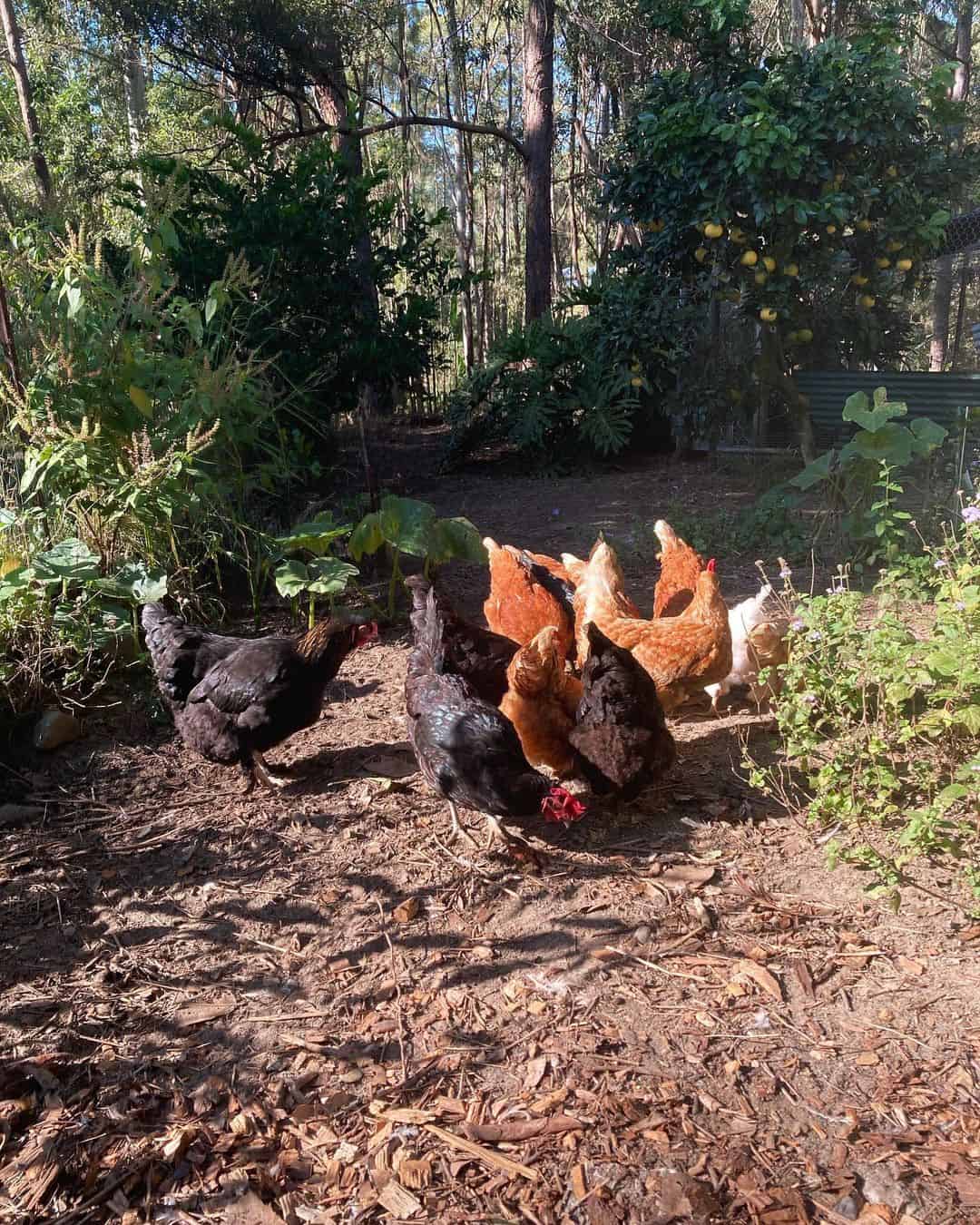
As you know, there are two types of oak trees: red oak and white oak. The white oak is a better choice when feeding chickens or pigs because the white oaks have lower tannin levels, making them ideal for cooking.
It means you will get rid of tannin more easily than red oak. If your chicken munches on some white oak acorns, that is not very problematic because it will need to eat large quantities to suffer symptoms.
However, red oak has a higher concentration of tannic acid; therefore, a small amount of these acorns will pack a heavy punch.
Important note: If you want to give your chickens acorns, you will have to prepare first. Secondly, acorns are not a regular part of chickens’ diets. Therefore, the key is moderation.
The most important food on chicken’s menu is chicken feed which should make up 90% of their diet.
The rest should consist of treats or snacks, you can include anything from fruits to veggies and even mealworms.
Benefits of Acorns and Nutritional Profile
So, what do acorns contain? They are rich in numerous nutrients, vitamins, and minerals. Like other nuts, acorns are rich in carbohydrates, phosphorus, protein, magnesium, potassium, niacin, phosphorous, calcium, zinc, and manganese.
They also contain various antioxidants which help with the cell damage caused by the free radicals. Due to high levels of fiber, acorns are great for improving gut health and regulating bowel movements.
Some people often refer to acorns as superfoods because they boost energy levels, improve metabolism, promote healing, maintain and repair muscle, and protect heart health. If you are interested in other health benefits related to acorns, click here.
Conclusion
To summarize, raw and fresh acorns as well as other parts of the oak tree are a big “NO” when it comes to feeding chickens because of the presence of tannic acid.
However, if you leech the tannic acid from the acorns, you can turn them into a very nutritious and healthy snack.
This article whether chickens can eat acorns, why they are toxic, symptoms of acorn poisoning, how to cook and prepare acorns, and their health benefits and nutrition.
The most important takeaway is to be cautious with acorns, feed them in moderation, and prepare them adequately. Did you know that chickens can eat acorns? If you have any comments or what to share your experience with acorns, feel free to comment any time!

